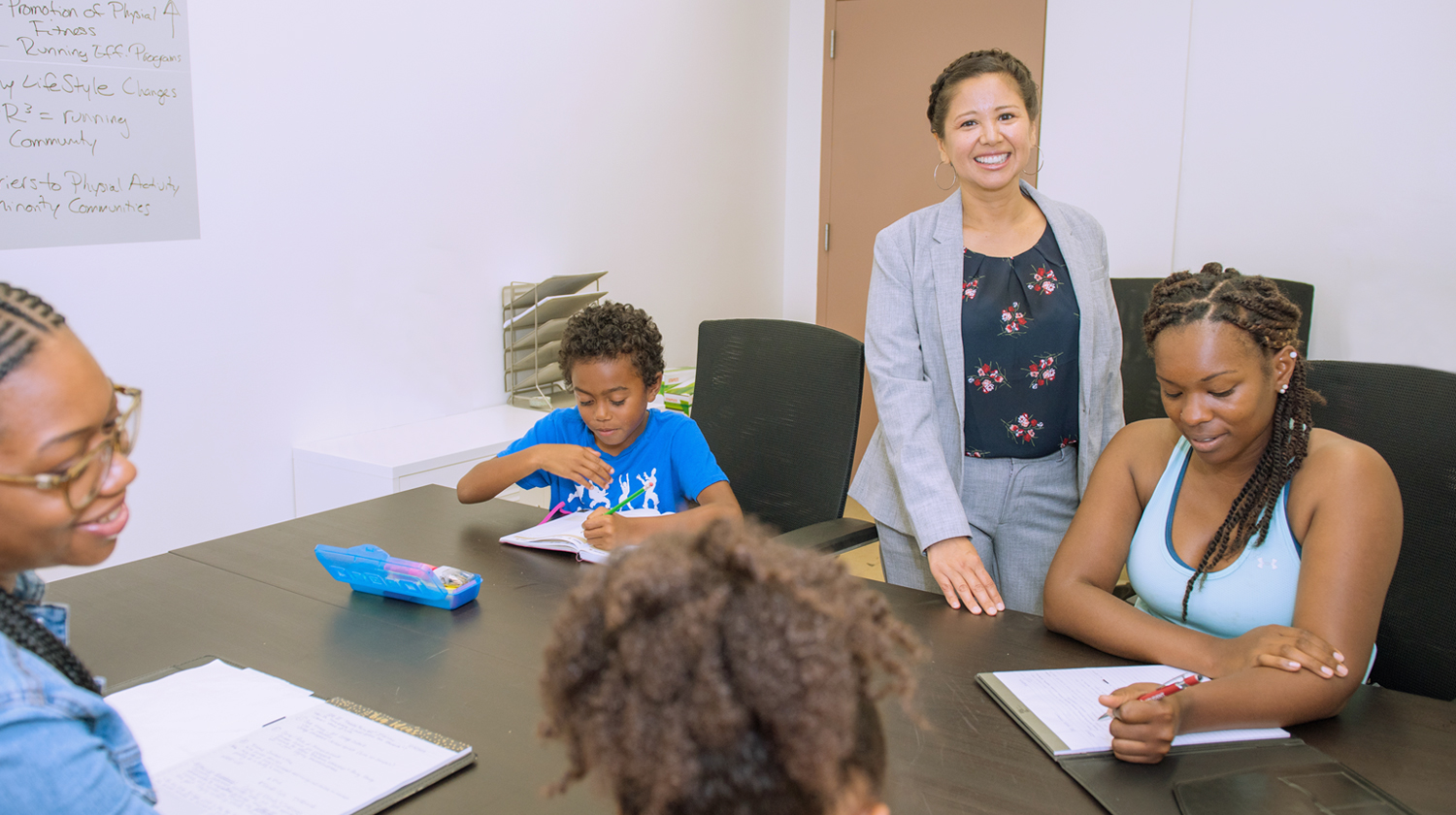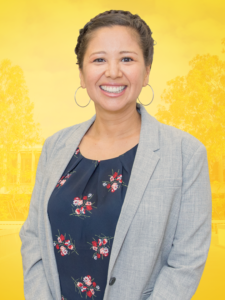
When she was a graduate student, Katy Pinto didn’t feel that her professors understood her research interests. Worse yet, she felt that she had to convince them that the populations she wanted to study–Latinx immigrants and ethnic minority groups–mattered enough to be considered as research topics.
Now, as a professor of sociology at California State University, Dominguez Hills (CSUDH), she lets her students decide what matters most.
“I don’t want my students to feel the same way. I want them to know that their questions and ideas are important,” said Pinto, who has been teaching at CSUDH since 2007. “Instead of dismissing students’ research ideas outright, we work together to make research projects that contribute to new knowledge in sociology. This approach has helped me connect with students in a wonderful way.”
 Such mutually beneficial interactions with students and her fellow faculty helped garner Pinto the 2019 Presidential Outstanding Professor Award. Created to recognize excellence in teaching, the award is presented to an individual who has also demonstrated outstanding achievements in all areas of faculty performance, who is a respected educator and expert their field, and is an outstanding member of the university and the community.
Such mutually beneficial interactions with students and her fellow faculty helped garner Pinto the 2019 Presidential Outstanding Professor Award. Created to recognize excellence in teaching, the award is presented to an individual who has also demonstrated outstanding achievements in all areas of faculty performance, who is a respected educator and expert their field, and is an outstanding member of the university and the community.
“It’s great to be recognized for the work that I’ve done around research, teaching, and service,” said Pinto. “One of the best things about the faculty awards is reading all the wonderful comments that students and colleagues share. To have others recognize that you are making a difference on and off campus really feels great.”
Because Pinto values research as an important part of student success, she provides her undergraduate and graduate students guidance with their research in class or in her Social Problems Research Laboratory, which she opened in the Department of Sociology in 2014.
Pinto’s students generally focus on research topics that address racial or gender inequality in a wide range of settings, including higher education, work, and family. For example, they have worked together examining the working lives of exotic dancers and ice cream vendors, and the lived experiences of college students.
The lab’s curriculum is also designed to help students prepare academically for graduate school in sociology or related disciplines. One aspect of the lab that Pinto most appreciates is the opportunity for more student mentoring. She has learned that good mentorship expands exponentially when faculty can relate personally with students, and when educators understand their unique perspectives.
“A good faculty mentor remembers how hard it was to be a student, but many of our students have a lot of challenges that I never had, including the need to work while in college. That’s why you need to push students to raise the bar, while helping them confront the challenges head on. It’s also important to remember that we can learn a lot from our students. I’m a better teacher and researcher because they also teach me things,” said Pinto.
“We also have to remember that our students are not empty vessels–we don’t just dump knowledge into them,” she added. “It’s a learning process and sharing what I know about the process with students is important.”
The Presidential Outstanding Professor Award also recognizes faculty members’ success in research and their service to CSUDH and the communities it serves.
Pinto will soon participate in research with the West Hills Community College District. Funded by a National Science Foundation grant in August 2019, the work will examine the effectiveness of two programs focused on the intervention and academic success of first-generation science, technology, engineering, and mathematics (STEM) college students.
More specifically, Pinto’s research will explore how to improve the student pipeline of underrepresented minority students from the district to universities to earn STEM degrees. “I see research and teaching as complementing each other,” she said. “Incorporating research into my teaching has really changed the in-classroom experience for my students. At the same time, my work with students outside of the classroom in my research lab has helped me mentor students more closely and to close gaps in achievement.”
On campus, Pinto has always been an active faculty member in committees and student advancement programs, including the Academic Senate Executive Committee, and serving as graduate coordinator for the Sociology Department. For the California State University system, she has served as a reviewer for Sally Casanova Pre-Doctoral Award, and the Social Science Research and Instructional Council Field Awards.
Pinto’s students have presented at Student Research Day and have gone on to present their work at the Pacific Sociological Association’s and the American Sociological Association’s annual meetings. She also likes to stay connected with graduates, and often receives messages about their experiences.
“One of my former students was helping in Puerto Rico after Hurricane Maria. He sent me a message and photos out of the blue. It really touched me,” she shared. “He wrote, ‘I think a lot about what we talked about and read, even as I am here seeing it unfold in front of me. There are families displaced, and so many problems. Your class really helped me think about my work differently.’ That was really nice. You can’t always tell how much of a difference you are making for students.”